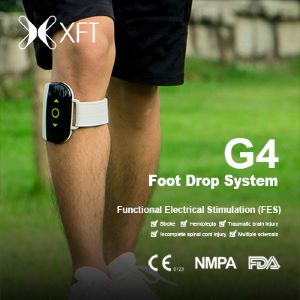Cancer
Do Cognitive Impairments Affect Readmissions in an Oncology Setting?
Wednesday, November 1, 2023
3:15 PM - 3:21 PM
Location: Station 8

Justin B. Tran, OTD, OTR/L
Occupational Therapist
City of Hope
Pasadena, California, United States
Sherry Hite, MOT, OTR/L
Director of Rehabilitation
City of Hope
Duarte, California, United States
Poster Presenter(s)
Research
Objectives: To assess cognitive impairments in an acute care oncology setting and its relation to unplanned 30-day readmissions.
Design: All study participants were administered the Patient-Reported Outcomes Measurement Information System Cognitive Function- Abilities Short Form 4a (PROMIS) and the Activity Measure for Post-Acute Care Inpatient Daily Activity Short Form (AM-PAC) at the time of initial Occupational Therapy (OT) evaluation. The AM-PAC was repeated in addition to the Medi-Cog screen within 0-3 days preceding discharge from the hospital. Supplementary descriptive data was collected through chart reviews, encompassing the frequency of readmission occurrences, the duration until readmission, and the rationale behind readmission, with a focus on determining whether the readmissions occurred within an unplanned 30-day timeframe.
Setting: The study was conducted in an acute care oncology setting.
Participants: 356 participants admitted to the hospital over a span of six months, all of whom were referred for OT services.
Interventions: The study followed an observational design with standard of care interventions delivered based on impairments identified at the time of Occupational Therapy evaluation.
Primary Outcome Measures: AMPAC, PROMIS, and Medi-Cog.
Results: Of the 356 study participants, 20% were readmitted during the study period. A simple correlation between each assessment used and readmission status was conducted: AMPAC (0.0119), PROMIS (0.0156), Medi-Cog (0.0033). Each of these R^2 values were close to 0, indicating little correlation between these scores and 30-day unplanned readmission. Of note, the average PROMIS score at the initial evaluation was 16.78, which is lower than the mean score observed in the general U.S. population (18). Additionally, the average Medi-Cog score for all participants was 7.53, with 52% of the readmitted patients scoring below 8 out of 10, signifying a clear need for further cognitive assessment.
Conclusion: While this study did not establish a correlation between cognitive assessments and 30-day unplanned readmission, the findings highlight an unmet healthcare need that warrants attention from a multidisciplinary healthcare team. This includes screening for cognitive deficits, providing caregiver education, and facilitating referrals to cognitive rehabilitation services given the high prevalence of cognitive deficits.
Author(s) Disclosures: The authors declare no conflicts of interest.
Objectives: To assess cognitive impairments in an acute care oncology setting and its relation to unplanned 30-day readmissions.
Design: All study participants were administered the Patient-Reported Outcomes Measurement Information System Cognitive Function- Abilities Short Form 4a (PROMIS) and the Activity Measure for Post-Acute Care Inpatient Daily Activity Short Form (AM-PAC) at the time of initial Occupational Therapy (OT) evaluation. The AM-PAC was repeated in addition to the Medi-Cog screen within 0-3 days preceding discharge from the hospital. Supplementary descriptive data was collected through chart reviews, encompassing the frequency of readmission occurrences, the duration until readmission, and the rationale behind readmission, with a focus on determining whether the readmissions occurred within an unplanned 30-day timeframe.
Setting: The study was conducted in an acute care oncology setting.
Participants: 356 participants admitted to the hospital over a span of six months, all of whom were referred for OT services.
Interventions: The study followed an observational design with standard of care interventions delivered based on impairments identified at the time of Occupational Therapy evaluation.
Primary Outcome Measures: AMPAC, PROMIS, and Medi-Cog.
Results: Of the 356 study participants, 20% were readmitted during the study period. A simple correlation between each assessment used and readmission status was conducted: AMPAC (0.0119), PROMIS (0.0156), Medi-Cog (0.0033). Each of these R^2 values were close to 0, indicating little correlation between these scores and 30-day unplanned readmission. Of note, the average PROMIS score at the initial evaluation was 16.78, which is lower than the mean score observed in the general U.S. population (18). Additionally, the average Medi-Cog score for all participants was 7.53, with 52% of the readmitted patients scoring below 8 out of 10, signifying a clear need for further cognitive assessment.
Conclusion: While this study did not establish a correlation between cognitive assessments and 30-day unplanned readmission, the findings highlight an unmet healthcare need that warrants attention from a multidisciplinary healthcare team. This includes screening for cognitive deficits, providing caregiver education, and facilitating referrals to cognitive rehabilitation services given the high prevalence of cognitive deficits.
Author(s) Disclosures: The authors declare no conflicts of interest.
Learning Objectives:
- Upon completion, participants will be able to define common cognitive deficits in patients undergoing cancer treatment
- Upon completion, participants will be able to demonstrate understanding of feasible cognitive assessments used in the inpatient setting
- Upon completion, participants will be able to review methods and results of a quality improvement study

.jpg)
